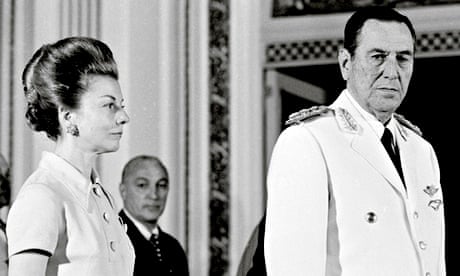General Juan Domingo Perón, who returned to Argentina from a long exile barely a year ago, died last night in Buenos Aires. He was 78.
President Perón's death was announced after a series of medical bulletins throughout the day, each announcing a deterioration. His third wife, Maria Estela De Perón, broadcast appeals to "friends and opponents alike to put aside their personal passions following the death of this great apostle of peace and non-violence."
Senora Perón succeeds him as President though she may not be allowed to occupy the Casa Rosada, the Argentine Presidential Palace for long.
All Argentina has been waiting for this moment ever since Perón, clearly ailing, was elected with a massive majority for the third time last September. He always had grandiose plans for establishing himself as a major Third World leader, but all his time was spent in patching up the bitter and often violent quarrels at home within the amorphous movement that was created around him and his legend.
Perón was elected to control the violence that had crept into the political life of Argentina but he failed to do so and the state of incipient civil war is unlikely to stop with his departure.
Dark days ahead seem almost inevitable as the rival groups within the Perónist movement struggle for power. Huge crowds will take over the streets, political leaders will be assassinated and at the end martial music will blare and the armed forces will announce that it is their "historical destiny" to reassert control over the nation.
That is the future many Argentinians fear and it is too accurate a picture of the recent past in Latin America to be considered a caricature.
On the bright side is evidence that virtually all political groups in Argentina will try desperately to maintain the semblance of constitutional legality reestablished last year after nearly two decades of disguised military dictatorship.

Comments (…)
Sign in or create your Guardian account to join the discussion